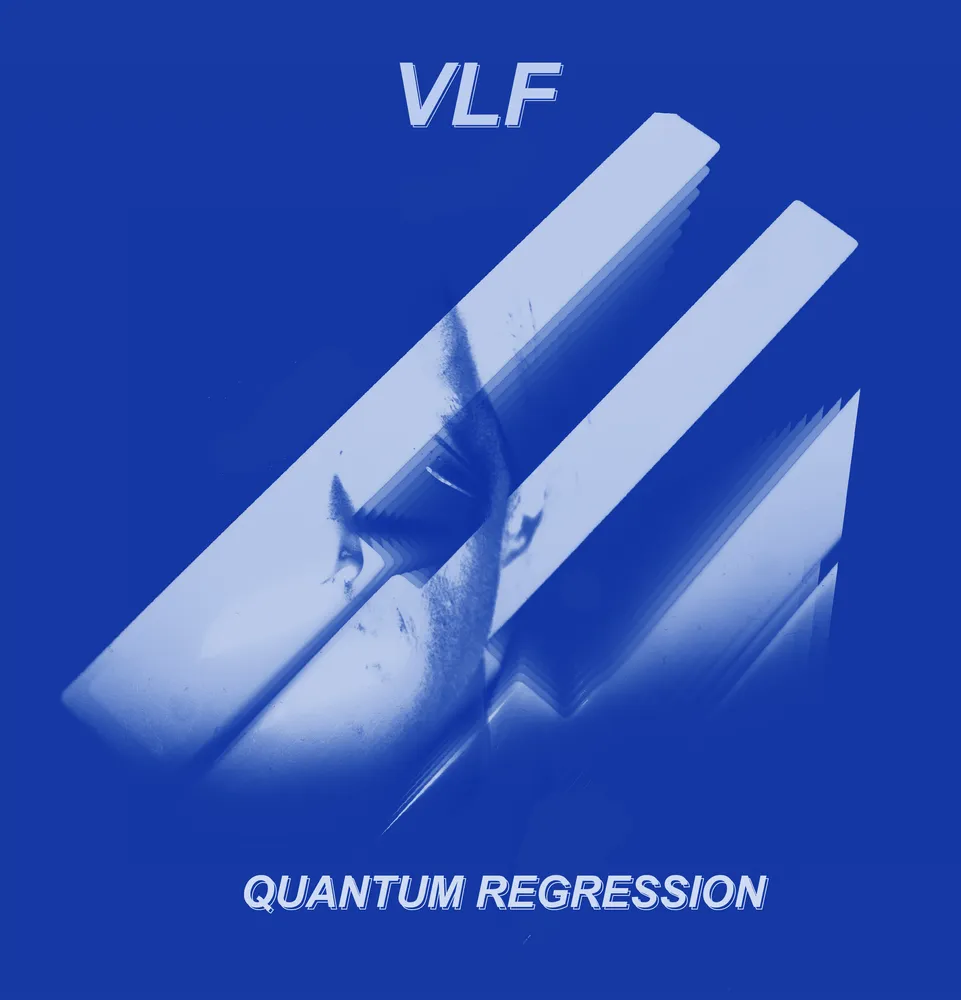Album Review: Quantum Regression by VLF

Album Review: Quantum Regression by VLF
Written By: Dan Eachus
Liam Power’s solo project, VLF, has long been a fascinating exploration of post-punk, darkwave, and electronic innovation. With Quantum Regression, the Naarm (Melbourne)-based musician and media artist delivers his most cohesive and ambitious work yet, a striking blend of goth-rock, dub, and synth-driven soundscapes that cements VLF’s place in the evolving darkwave canon.
Emerging from Melbourne’s punk scene in the mid-2010s, Liam Power’s transition from guitars to analogue synthesizers marked a bold departure, and Quantum Regression is the natural culmination of this evolution. It draws from his established influences—the raw energy of DAF, the stark minimalism of Snowy Red, and the quirky synth-punk of Devo—but expands on them with a cinematic scope and layered production. Across 11 tracks, the album weaves together pulsating rhythms, introspective lyrics, and an unflinching look at postmodern disillusionment.
A Journey Through Quantum Regression
The album opens with “Intro,” a brief but atmospheric instrumental piece that sets the tone for what’s to come: a haunting blend of analogue synth textures and dub-inflected echoes. It seamlessly transitions into “Regress,” the second single and one of the album’s standout tracks. Here, VLF’s signature pulsing basslines and hypnotic synth patterns create a feedback loop of introspection, with lyrics that probe the existential malaise of the digital age.
“Stride” picks up the pace with its driving beat and jangly guitar riffs, offering a post-punk urgency reminiscent of early Cure. The track’s layered production highlights Liam’s knack for balancing rawness with precision, as darkwave synths interplay with distorted guitar lines. This energy carries into “TVOD,” a biting critique of media consumption that nods to VLF’s punk roots. The track’s frenetic rhythm and sharp vocals make it one of the most aggressive moments on the album.
The album’s middle section—“Taste” and “Sequels”—dives into darker, more introspective territory. “Taste” pairs a brooding bassline with ethereal synth pads, creating a mood of eerie detachment. Meanwhile, “Sequels” explores themes of repetition and stasis in modern life, its dub-inspired production adding depth to the track’s layered rhythms and echoing vocals.
“Square Meals” shifts the focus to a slower, more experimental soundscape. With its dub-heavy basslines and fragmented synth melodies, the track feels like a modern take on early industrial music, offering a moment of reflection before the album’s final act. This introspective pause makes the transition to “Fashion” all the more impactful. A fusion of sharp power chords and the oblique textures of the MS20, “Fashion” is a commentary on the cyclical nature of trends and nostalgia. Liam’s lyrics wrestle with the fear of obsolescence, ultimately resolving in a call for renewal and reinvention.
“Electric” stands out as one of the album’s most anthemic tracks. Its infectious synth hooks and propulsive beat make it an undeniable earworm, while its layered production showcases VLF’s ability to craft danceable yet introspective music. This is followed by “Task,” a track that leans into VLF’s goth-rock tendencies, with brooding guitars and anthemic vocals evoking the grandeur of 80s acts like Bauhaus and Sisters of Mercy.
The album closes with “Bells,” a haunting and cinematic piece that ties together the album’s themes of renewal and introspection. The track’s sparse arrangement—featuring mournful synth melodies and dub-inflected echoes—leaves a lasting impression, inviting the listener to sit with the album’s emotional weight long after the final note fades.
A Sonic Triumph
Quantum Regression is a testament to Liam Power’s growth as an artist. Where his earlier work, such as 2019’s self-titled debut, introduced listeners to his distinctive fusion of synth-punk and minimal wave, and 2020’s Eternal Recurrence added a raw, guitar-driven edge, this latest effort represents a synthesis of these elements. The album’s cinematic production and layered soundscapes elevate it beyond a mere collection of tracks, offering a cohesive journey that bridges the rawness of punk with the precision of electronic music.
Moreover, the album’s thematic depth—exploring nostalgia, obsolescence, and the search for meaning in a fragmented world—resonates deeply in today’s cultural climate. Tracks like “Regress” and “Fashion” exemplify VLF’s ability to pair introspective lyrics with compelling sonic backdrops, creating music that is as thought-provoking as it is emotionally engaging.
Conclusion
With Quantum Regression, VLF has crafted an album that is both innovative and accessible, a work that bridges genres and defies easy categorization. By blending the rhythmic pulse of analogue synthesizers with the raw energy of punk and goth-rock, Liam Power has created a sound that feels timeless yet urgently contemporary. This is an album that demands repeat listens, each track revealing new layers of meaning and complexity. For fans of darkwave, post-punk, and beyond, Quantum Regression is not to be missed.






